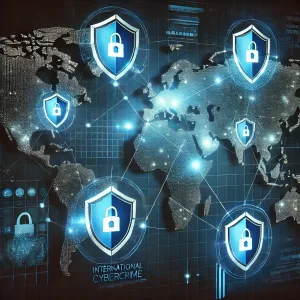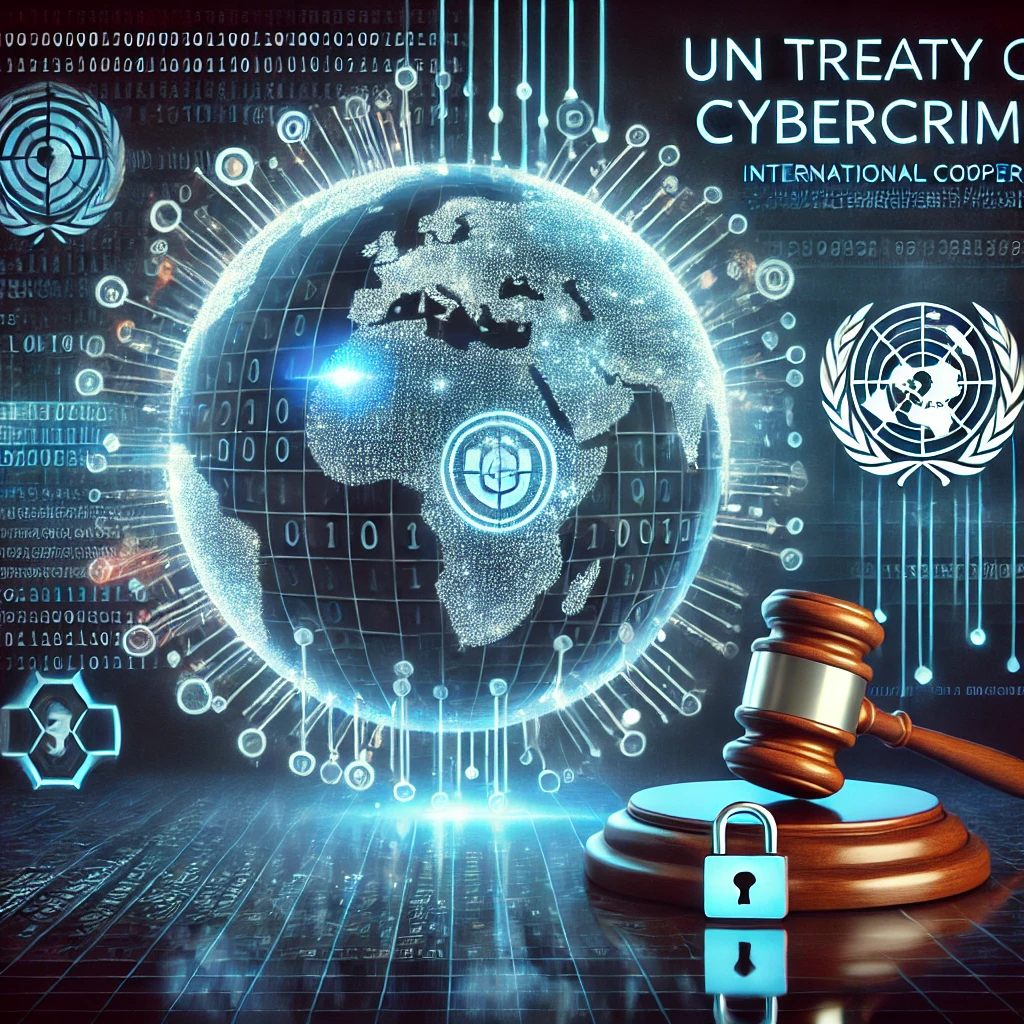UN Global Cybercrime Treaty
The United Nations has introduced the UN Global Cybercrime Treaty, aiming to combat the rising threat of cybercrime worldwide. With cybercrime damages projected to exceed $10.5 trillion annually by 2025 (Cybersecurity Ventures), the need for international cooperation has never been greater. While this treaty marks a significant effort to enhance international cybercrime cooperation, many experts question its potential impact on cybersecurity regulations, privacy rights, and national sovereignty.
Why the UN Global Cybercrime Treaty Matters


Cybercrime is increasing at an alarming rate, affecting individuals, businesses, and governments. The UN’s initiative seeks to establish a global framework for cybercrime laws by standardizing legislation, improving cross-border cooperation, and providing technical assistance to developing nations. However, critics argue that the treaty’s broad language could lead to unintended consequences, such as excessive government surveillance or suppression of digital rights.
Key Features of the UN Global Cybercrime Treaty
Harmonized Cybercrime Laws
Countries must adopt common legal definitions for cybercrime, ensuring consistency in prosecution. This could help reduce cybercriminals exploiting legal loopholes in different jurisdictions.
Faster International Cybercrime Cooperation
Governments will have streamlined processes to exchange cybercrime-related data and evidence, potentially expediting investigations and arrests.
Protection of Critical Infrastructure
The treaty pushes for stronger cybersecurity regulations to safeguard essential services like banking, healthcare, and national security systems, reducing the risks of cyberattacks on vital sectors.
Capacity Building
Developing nations will receive financial and technical aid to strengthen their cybercrime laws and enforcement mechanisms, helping them combat threats that often originate from well-funded cybercriminal organizations.
Concerns Over Digital Privacy and Sovereignty

Despite its benefits, critics argue that the UN Global Cybercrime Treaty could be misused. Some governments might use it to justify mass surveillance, internet censorship, or crackdowns on digital dissent. Digital rights activists have voiced concerns about vague language that could criminalize ethical hacking, investigative journalism, and online anonymity tools like VPNs and Tor.
Impact of UN Global Cybercrime Treaty on Ethical Hacking and Investigative Journalism:
A major concern is that cybersecurity researchers and ethical hackers may be prosecuted under ambiguous laws, hindering white-hat hacking efforts that help strengthen security systems.
Global Pushback Similar to the Budapest Convention:
A similar debate arose around the Budapest Convention on Cybercrime, where China and Russia refused to sign due to concerns over foreign interference. The UN Cybercrime Convention might face similar pushback, with some nations prioritizing national cybersecurity regulations over global compliance. Additionally, legal ambiguities in the treaty could lead to extradition disputes and misuse of cross-border data requests.
How Businesses and Individuals Will Be Affected by UN Global Cybercrime Treaty:
UN Global Cybercrime Treaty For Businesses:
- Companies will need to strengthen cybersecurity policies to comply with international cybercrime cooperation standards.
- Cross-border data sharing could impact firms handling sensitive customer information, requiring stricter data protection policies.
- The treaty could encourage harsher penalties for data breaches, making cybersecurity regulations a top priority for companies worldwide.
UN Global Cybercrime Treaty For Individuals:
- The treaty may increase online surveillance, limiting digital privacy.
- Cybercriminals who previously exploited legal loopholes may face quicker prosecution, reducing cyber fraud.
- Online users could see new cybersecurity awareness programs launched globally, promoting safer digital practices.
Future Implications of UN Global Cybercrime Treaty:
The UN Global Cybercrime Treaty could pave the way for a unified approach to fighting cybercrime, but its success depends on how nations implement and enforce it. Countries must strike a balance between cybersecurity and personal freedoms, ensuring that cybercrime laws protect citizens without being misused for political gains. If effectively enforced, this treaty could set a new global standard for cybersecurity regulations, shaping digital security for decades to come.
Final Thoughts Abaout UN Global Cybercrime Treaty:
The UN Global Cybercrime Treaty is a bold step toward tackling cyber threats, but it carries risks that need careful monitoring. Businesses and individuals must stay informed about cybersecurity regulations and prepare for the evolving digital landscape.
🔹 Is your business ready for the new global cybersecurity landscape? 🔹 Stay ahead by reading our latest analysis on cybercrime and digital forensics.
🔗 Related Articles on UN Cybercrime Treaty:
- UN Treaty on Cybercrimes – A Global Perspective
- The Impact of the UN Cybercrime Treaty on Digital Rights
- Cybersecurity Laws and International Regulations
Key Takeaways:
✅ The UN Global Cybercrime Treaty aims to unify cybercrime laws and enhance international cybercrime cooperation.
✅ It raises privacy concerns due to potential government overreach.
✅ Businesses and individuals must adapt to new cybersecurity regulations to avoid penalties.
✅ The treaty’s impact depends on global implementation and enforcement, which may vary by country.
🚀 How will the UN Cybercrime Treaty impact your business? Join the conversation in the comments!
#Cybercrime #UNTreaty #CyberSecurity #DigitalPrivacy #CyberThreatMitigation #CyberThreats #GlobalCybercrimeRegulations



